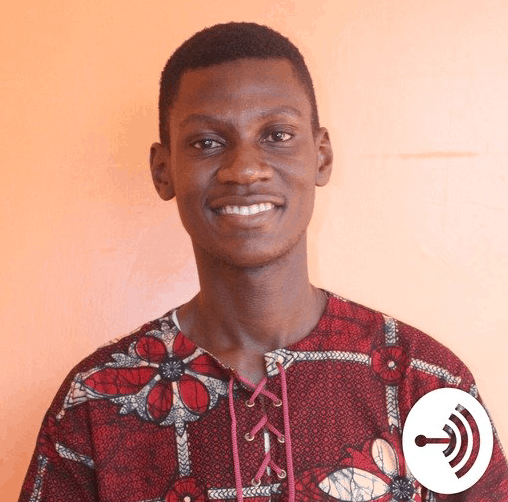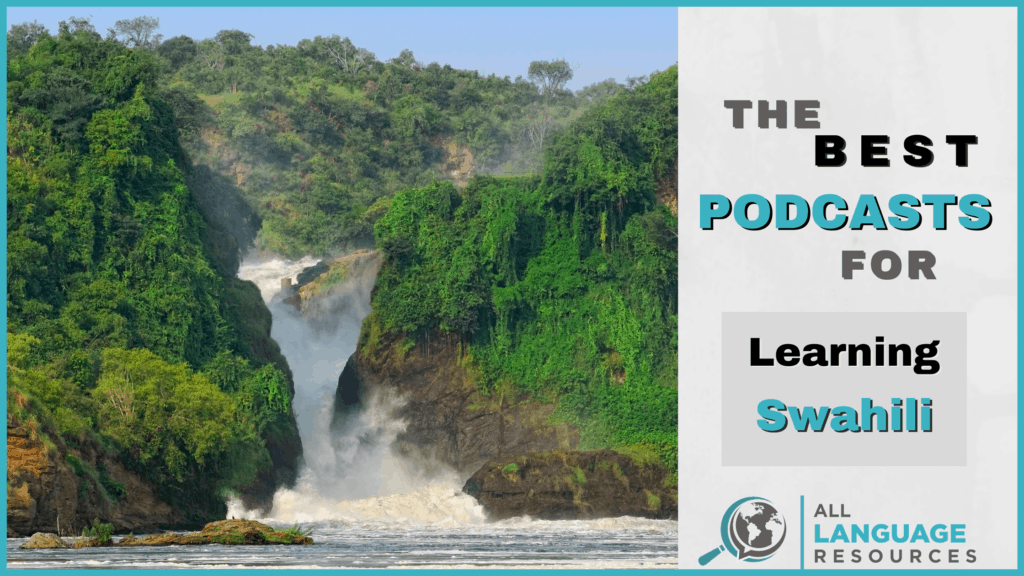Swahili is one of the primary languages in East Africa. It’s spoken by approximately 100 million people either as a primary or secondary language. If you want to travel around or work in East Africa, including Tanzania, Kenya, Uganda, Mozambique and other similar countries, then learning Swahili will come in handy.
However, learning Swahili isn’t always the easiest task. It’s not one of the more common languages that native English speakers seek out to learn, such as French or Spanish. For this reason, it can be a little bit more difficult to hunt down language-learning resources.
Podcasts can be an excellent complement to online or in-person Swahili courses, whether you want to work on your vocabulary, brush up on grammatical concepts or just learn more about Swahili culture and history.
Check out these eight Swahili podcasts for more.
Podcasts for Beginners
If you’re just starting out or haven’t started at all, then you’ll find these Swahili language-learning podcasts to be right up your alley. They start with the basics and help you work your way up to more intermediate-level concepts.
SwahiliPod101

SwahiliPod101 is an excellent resource for beginners, as it starts you out with the absolute most basic concepts and then gradually introduces listeners to more complicated challenges. Although the majority of the content is made with beginners in mind, there are also intermediate and advanced lessons as well.
The lessons on SwahiliPod101 focus on dialogues as the hosts explain important vocabulary, grammar, and cultural insights. However, to access the majority of the content, you’ll need a subscription. Fortunately, subscriptions are quite affordable. To learn more about this, you can check out our full review of SwahiliPod101.
Learn Swahili with LinguaBoost

To learn conversational Swahili that you might use in everyday conversations, and not necessarily a long list of vocabulary words, you might consider tuning in to this podcast from LinguaBoost. Every podcast is a separate lesson, teaching you common conversational sentences and questions, each podcast covering between six and eight sentences or questions each. All the material is translated and spoken by native speakers.
BONGO Classy

BONGO Classy is a fun podcast because it not only teaches you the Swahili language, but it also blends in information, news and entertainment that’s meant to teach you additional facts about culture and tourism in Tanzania, around Kilimanjaro and Ngorongoro.
Intermediate
As you further develop your Swahili skills, you’ll start to string together sentences and entire phrases — and not just those that are most commonly used in conversation, but actual sentences and phrases that will allow for a full and in-depth dialogue. As you get to this point, you’ll want to lessen the amount of time you spend listening to English podcasts and start focusing on those that blend English and Swahili.
Africa & Beyond

Africa & Beyond features podcasts on religious topics, but the podcasts are in both English and Swahili, with additional Kirundi translations. This means that you can listen to both the English and the Swahili content and compare and contrast, and follow along at a pace that matches your skill level. You’ll be able to see how the two languages compare when used in the same context, but not necessarily a language-learning context, as you would with the beginner-level podcasts.
Translation of the Quran in Swahili

Similarly, if you have an English-printed copy of the Quran, or can even just find one online, then this podcast would be very helpful to you. It features select passages from the Quran and then gives them in Swahili. The passages are identified in English, though, so you can find them in your English-printed copy of the text, and then follow along with the Swahili speaker. As you follow along in English while listening to the Swahili, you’ll be able to, again, compare the two languages and pick up on words, phrases and grammar constructs.
Kenyan Plug

The Kenyan Plug podcast is also presented in a mix of English and Swahili. The entertainment-based podcast features funny conversations and motivational messages and is still being updated on a regular basis, with new episodes uploaded every few days. (Just be warned, some of the content is explicit and for mature audiences only.)
Advanced
Once you’ve become more accustomed to the Swahili language and you feel more comfortable listening to and speaking it, then you’ll want to up the ante and challenge yourself even further. You can do so by listening to advanced-level Swahili podcasts, which are spoken almost entirely or completely in Swahili. This allows you to test your comprehension skills in real-world settings, as you listen to the same content native Swahili speakers would listen to.
SBS Swahili

Produced by the Special Broadcasting Service, SBS Swahili offers all kinds of world news, cultural stories, lifestyle segments and more, touching on issues and topics that you probably are already familiar with if you stay up-to-date on world affairs. Listening to SBS Swahili will allow you to listen to content on topics you already know, just in the Swahili language, which can make comprehension easier. Episodes are regularly uploaded.
AWR Kiswahili

Similarly, if you’re familiar with religious topics, then you might listen to AWR Kiswahili, which is a program produced by Adventist World Radio and that touches on religious topics in the Swahili language. Episodes are uploaded once a day, meaning you have an almost endless supply of content to listen to.
Final Thoughts
While learning Swahili isn’t the easiest, it can be extremely useful if you have any plans to visit or work in East Africa. The podcasts above can help you learn new Swahili skills or brush up on old ones.
Did we miss any Swahili language-learning podcasts on our list? Tell us about them!
Related Posts
If you found this article useful, you might also like:

